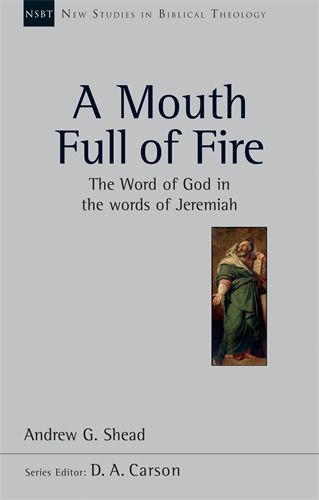
In the book of Jeremiah, the vocabulary of 'word' and 'words' is not only uniquely prevalent, but formulae marking divine speech also play an unprecedented role in giving the book's final form its narrative and theological shape. Indeed, 'the word of the Lord' is arguably the main character, and a theology that is both distinctive and powerful can be seen to emerge from the unfolding narrative.
In this stimulating study, Andrew Shead examines Jeremiah's use of word language; the prophet's formation as an embodiment of the Word of God; his covenant preaching and the crisis it precipitates concerning the recognition of true prophecy; and, in the 'oracles of hope', how the power of the Word of God is finally made manifest.
Shead then brings this reading of Jeremiah to bear on some issues in contemporary theology, including the problem of divine agency and the doctrine of Scripture, and concludes by engaging Jeremiah's doctrine of the Word of God in conversation with Karl Barth. The prophet's major contribution emerges from his careful differentiation of 'word' and 'words'.
In this stimulating study, Andrew Shead examines Jeremiah's use of word language; the prophet's formation as an embodiment of the Word of God; his covenant preaching and the crisis it precipitates concerning the recognition of true prophecy; and, in the 'oracles of hope', how the power of the Word of God is finally made manifest.
Shead then brings this reading of Jeremiah to bear on some issues in contemporary theology, including the problem of divine agency and the doctrine of Scripture, and concludes by engaging Jeremiah's doctrine of the Word of God in conversation with Karl Barth. The prophet's major contribution emerges from his careful differentiation of 'word' and 'words'.



